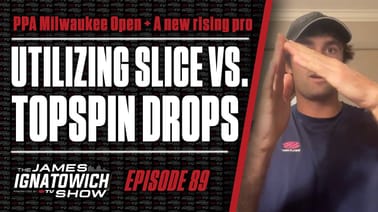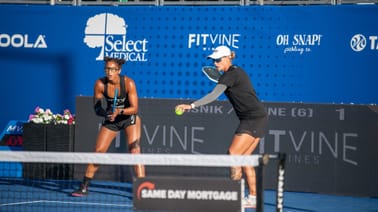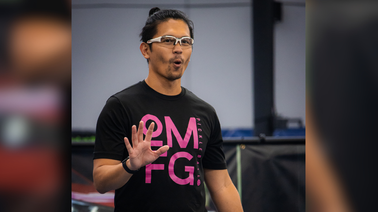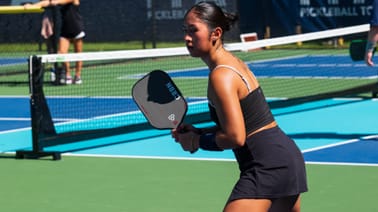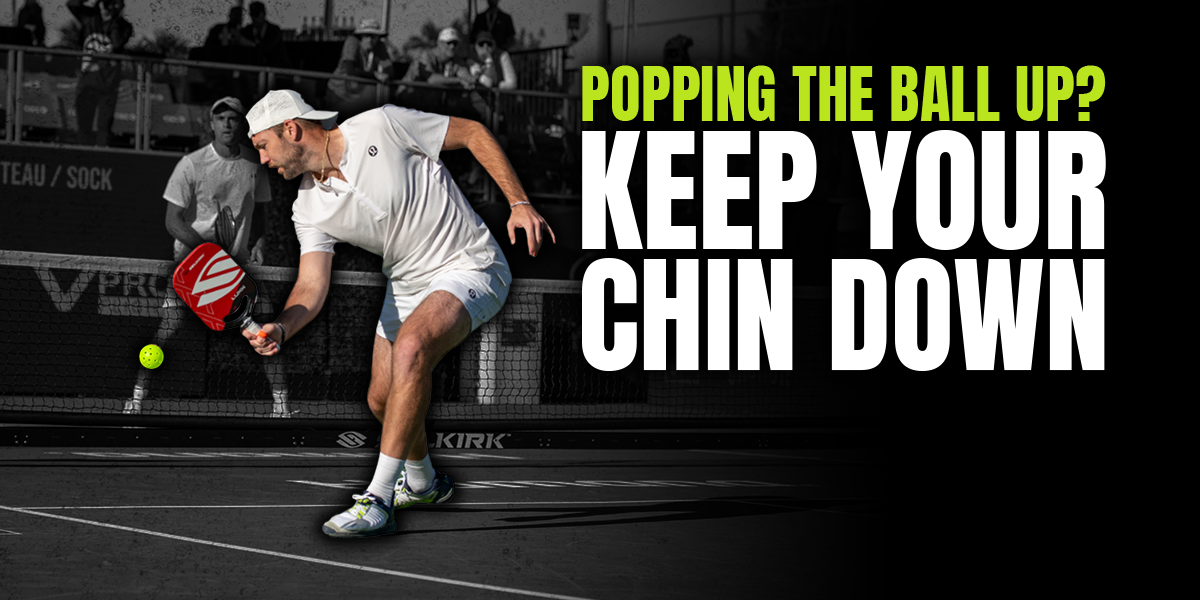
In pickleball, there’s nothing more frustrating than popping the ball up, only to watch your opponent slam it back at you for an easy point. If you’ve ever wondered why this happens, the answer might lie in something as simple as the position of your chin.
A lesson from golf and baseball
One of the best things about pickleball is how it relates to other sports. This is helpful because almost none of us grew up playing pickleball, but many of us grew up playing more common sports like golf and baseball.
Keeping your head down (and your chin tucked) while making contact with the ball is drilled into players in many sports, especially in those two mentioned.
In golf, lifting your head too soon during a putt often leads to a hook or a push, causing you to miss out on pars and birdies.
In baseball, you're taught to stay down on the ball while fielding to reduce errors and keep your chin tucked while bringing your bat through the zone to ensure solid contact.
You should do the same for pickleball.
Why you should tuck your chin in pickleball
When you lift your head during a shot, even just a fraction too early, your paddle also tends to lift slightly.
This subtle movement shifts your contact point, and instead of hitting the ball with the middle of your paddle (the sweet spot), you're more likely to hit it with the edge, where there is less pop and control.

This mishit often becomes a popup that leads to an easy putaway by your opponent.
Chin down, focus on contact
Like in golf and baseball, the key to avoiding these mishits is maintaining focus on the ball through the point of contact. Keeping your chin and eyes down stabilizes your paddle, ensuring a cleaner shot.
This helps you hit the ball with the amount of power and control you intended and can help you drop or reset it more easily.
How to practice keeping your chin tucked
Transition zone drills are a great way to practice keeping your chin tucked during a shot.
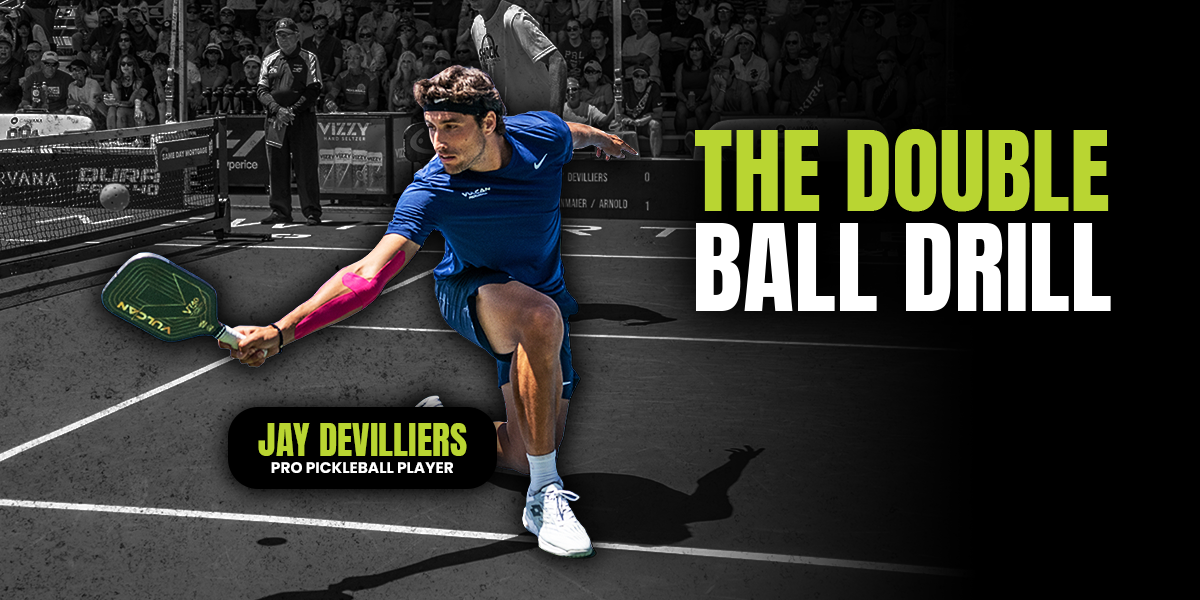
Have your drilling partner (or ball machine) hit aggressive shots at your ankles while you stand about 5-6 feet from the baseline in the middle of the transition zone.
This is often the area of the court where we want to softly reset a ball into our opponent's kitchen. It's also where we make the mistake of lifting our heads too soon and giving our opponent something to smash.
Your sole focus should be keeping your chin against your chest as you contact the ball. Even after contact, try your best not to lift your head but leave your chin tucked until the ball goes back over the net.
You'll be shocked to learn (after a few tries) that you don't even have to look at the ball to know when you've made a great reset.
Keeping your chin tucked during drives or baseline drops is another way to practice this. Again, you'll soon find that your shots stay low, and the dreaded pop-up has been removed from your game.

Love Pickleball? Join 100k+ readers for free weekly tips, news & gear deals.
Subscribe to The DinkGet 15% off pickleball gear at Midwest Raquet Sports



